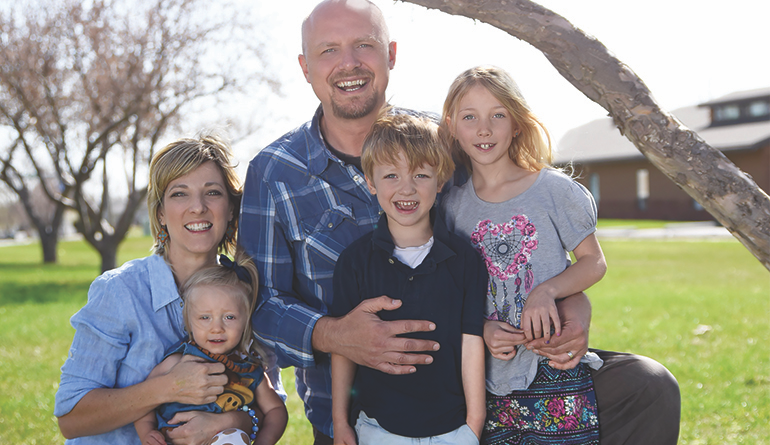Raising a “Can-Do” Kid
Therapists Wendy and Craig Mullins—of LMB, Live. Move. Be.—tell us that by adjusting our expectations to meet our kids where they naturally are, we maximize their potential for success.
If you’re a parent of a school-aged child, chances are you have been impacted one way or another by parenting standards à la Pinterest. Do you measure your abilities against images of ultra-fancy, impossible tree houses or Martha Stewart-caliber cupcakes?
You should have seen the look of sheer disappointment on our daughter’s face when presented with a homemade pink lemonade Elsa and Anna cake for her fifth birthday. The “Pinteresting” prototype photo neglected to illustrate the effect of gravity on two Barbie dolls—which, in our house, pulled the cake apart at the center. The whole debacle got me thinking of how often our standards for ourselves as parents, and for our kids, can inevitably disconnect us from the stuff that really matters. It reminded me: focus on the celebration, not the cake.
For the last decade or so, we have been parenting in the age of what some have termed “overparenting”—aiming to do everything smarter, more elaborately, over-analytically, and to beyond-humanly-possible standards. And part of me wonders if that is the best thing for our kids. But as always, that good-ole, figurative pendulum is swinging, and a new trend is gaining momentum.
No, it is not “underparenting” (hopefully not, at least); it is more like, “just let your kids be kids” parenting. Partly influenced by the “free-range kids” and “simplicity parenting” phenomena, a wave of parents are going back to the basics. Just as we were encouraged in our youth to spend hours outside creating messy mud pies, we can recognize the value when our little ones ditch go-to devices and challenge siblings to a footrace down the cul-de-sac.
An important ingredient to successful child-rearing, whatever the approach, is to ensure that the child is not missed in the process. That is, it’s important that what we do for our kids is meaningful and connects with them uniquely. Dr. Robert Arnio of Learning Solutions often says, “nothing builds self-esteem like success.” People of all ages should be given plenty of opportunities to find their own levels, and to experience actual accomplishment. What is vital is not that the opportunities are met with little struggle—we know that overcoming mistakes is crucial to the learning process—but that the starting point and pace make sense.
To avoid kid-sized “can’t-stuckness,” parents, teachers, coaches, and counselors ought to free ourselves of expectations that are too rigid or based on ideals of what “level” the child should have reached, otherwise the child will let us know in no simple terms that it is not right for him. And, when a child is challenged or in the wrong, restrain from solving the problem for her. Start at the child’s natural place and invite her thinking.
Parental hurriedness, guilt, and pressure can easily hijack the learning process, but development and learning naturally take time. Encourage meaningful opportunities for your child to initiate plans, to contribute ideas, to make connections, to imagine possibilities, and to see a project as far through completion as he can. Allow your child to experience success along the way, and point it out, even if the success looks like pulling through a failed attempt without melting down. Encourage your child to ask for help (an important developmental skill!!!), and ask “why” questions to facilitate self-reflection and insight.
This is summer—the perfect time for your child to learn in the classroom of adventure, connection, backyard squabbles with neighbor kids, and even boredom. Take interest in child-sized discoveries and point out successes along the way—that’s what makes for “can-do” kind of kids.

